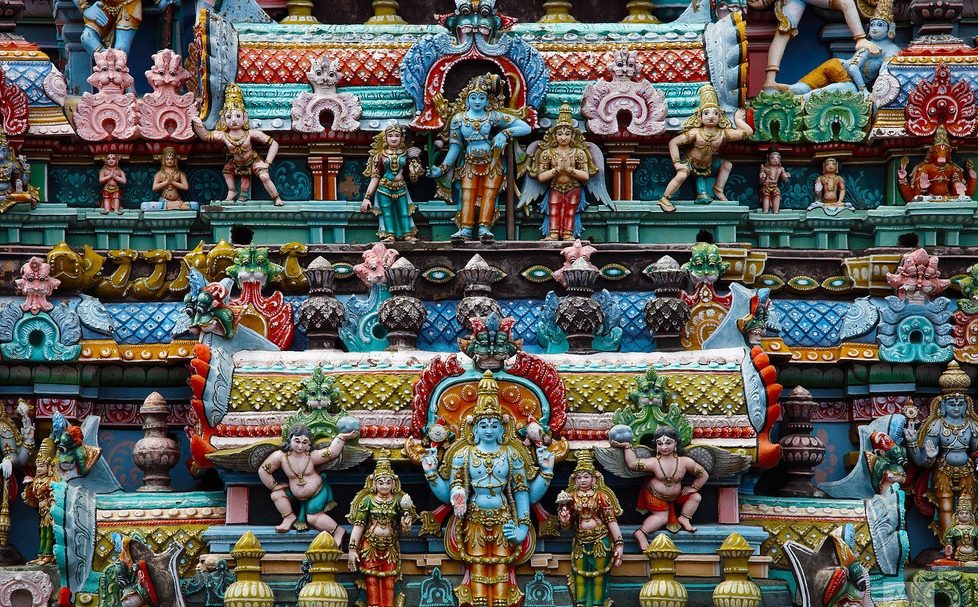Threats and Challenges to Hinduism (Part-4)


Extremist Muslims
Unfortunately, Muslims who are radical and unyielding employ many of the same strategies utilised in Kashmir to influence, threaten, convert, or drive out Hindus in other regions of India. Such extremist Muslims frequently react violently to any provocation and then turn on the Hindus in the region that looks to be impacted.
The truth is that while I was in Kashmir and other regions of India, I met a lot of friendly and hospitable Muslims who get along with Hindus, Sikhs, Christians, and even Americans. Therefore, not all Muslims display the same level of hostility or lack of collaboration with non-Muslims. But just as militants have wreaked havoc on their own people, a small number of zealots can ruin everything for everyone.
Every religion undoubtedly has its share of extremists, and I’m not sure anything short of a stronger emphasis on the actual global spiritual principles and truths can change that.
However, as we have observed from history and the situation in Kashmir, hardline Muslims frequently resort to violence, terrorism, and coercion in an effort to achieve their goals. Muslims have mistreated Hindus for generations and continue to do so today, as seen by the recent five heinous bombings in Delhi on September 30, 2008, which left over 100 people injured and 30 dead in various markets. The bombings were claimed by the Indian Mujahideen, a Muslim organisation that had just claimed responsibility for the bombings in Bangalore and Jaipur. I don’t believe it is important to document this occurrence in the same way as many other similar incidents that have been covered in articles, books, or websites. Anyone can find out more about this.
One thing to note is that, according to the Indian Constitution, Muslims are the only group to receive special advantages and more rights than the Hindu majority. What other nation carries that out? However, whenever there seems to be an issue within the Muslim community, riots break out, during which Hindus are the main target and are beaten, their homes and businesses are torched and damaged, Hindu females are sexually assaulted, and individuals are wounded or killed. Hindus are expected to stand by silently as evil is perpetrated on them in the name of tolerance. However, the media rushes out to talk about the outbursts and assaults of the “fanatical Hindus” when Hindus defend themselves. And we are expected to believe that this balanced.
How is that just? The Hindu majority might at any time force harsh responses on the Muslims if they truly wanted to. With the exception of occurrences like the Gujarat riots, in which Muslims burned Hindu men, women, and children alive on the Sabarmati Express rail car S-6 on February 27, 2002 at Godhra as it was departing from the holy city of Ayodhya, they have not generally done so. When we consider how much Hindus have already tolerated from Muslims, the only thing that surprises me is that such occurrences have not occurred more frequently.
China in Tibet
Today, ties between China and India are generally better than they once were, but this was not always the case. When China invaded northeast India, Nehru held them in high regard, and they have retained some of Arunachal Pradesh ever since. And right next to India, China has been occupying Tibet with no plans to ever let it go. 1.2 million Tibetans have died as a result of torture, shootings, concentration camps, etc. since China first conquered Tibet. In addition, 60% of all religious and cultural archives as well as 6254 monasteries were destroyed. About 10% of Tibetan residents live in prisons right now, and 250 million Chinese soldiers are in control of Tibet.
There are two to one more Chinese settler than Tibetans. However, since Resolution Number 63, passed by the United States Congress in 1989, provided these numbers, they might have become significantly worse.
The fact that Tibet is crucial to China’s military objectives is among the most major strategic justifications for their annexation of the region. It is situated above Russia and on a plateau near to India. According to reports, China has moved more than one-third of its nuclear arsenal to Nagchuka, about 250 kilometres from Lhassa.
Large caves are another feature of this area that the Chinese have connected with a network of tunnels. China has missiles targeted at India’s significant northern cities from there. It is unclear how much trust you could ever have in China considering that, in the past, China has never forgiven India for the kindness it displayed towards the Dalai Lama and the Tibetan refugees.
The conflict over India’s boundary with China has persisted for more than 50 years. Beijing continues to occupy 38,000 square kilometres in Ladakh and 90,000 square kilometres of Indian territory in Arunachal Pradesh (Aksai Chin). Why can’t China respect the ancient border between the two nations instead of clinging to the land that has always been a part of India if it is truly so interested in maintaining peace with India? Or is China merely using it as a means of putting pressure on India to cede what is rightfully theirs? If so, it would seem that China does not treat India with the same respect that China demands of India. India could therefore need to exercise caution in this partnership going forward.
Source: Crimes Against India by Stephen Knapp
DISCLAIMER: The author is solely responsible for the views expressed in this article. The author carries the responsibility for citing and/or licensing of images utilized within the text.
